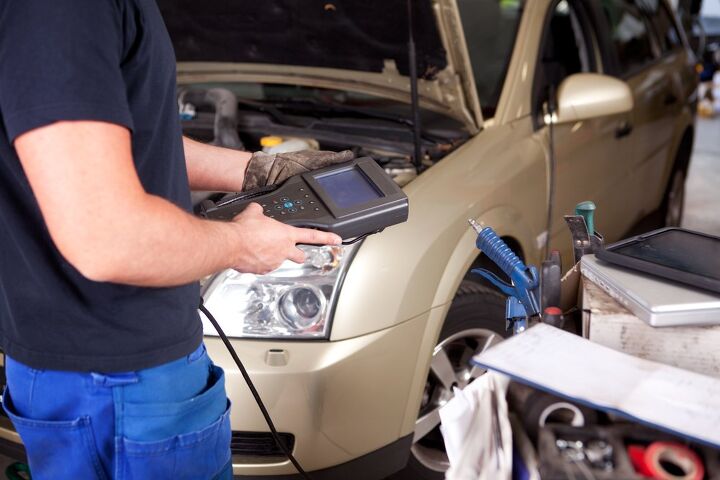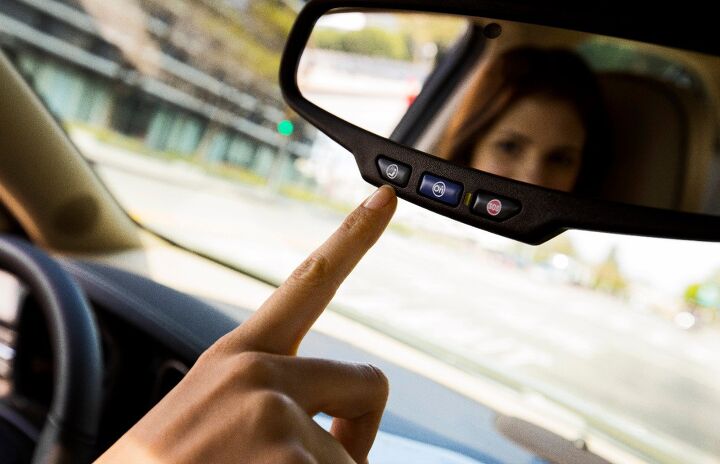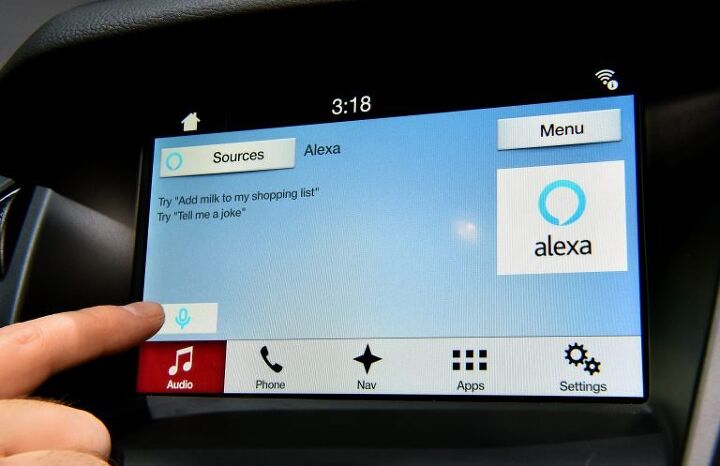#data
Uber Offering COVID-19 Contract Tracing Data to Government Entities
Uber Technologies Inc. has kicked off a new service that provides public health officials immediate access to data on drivers and riders who may have been in contact with someone infected with COVID-19. Weirdly, the company decided against announcing the sharing of your whereabouts with the government with any fanfare. Perhaps they thought average people wouldn’t be interested, or maybe that broadcasting their own participatory role in crafting a nightmare dystopia could be bad for business.
Then again, maybe this is exactly the kind of mass surveillance we need to flatten the curve, stop the spread, or whatever slogan is currently the trendiest. Worried? Don’t be. Uber said this service will be offered free of charge, meaning you don’t even have to spend any additional money to have your information shared.
What a sweet deal!
The Hero We Need: Consumer Access to Repair Coalition
When it comes to activism, it’s best to choose your battles carefully. Fortunately, there aren’t too many causes within the auto industry and most are easy to get behind.
Even though environmental activists sometimes find themselves at odds with reality, their hearts are usually the right place, and they’ve encouraged automakers to try new and interesting things with transportation. Safety advocates can likewise go overboard, but we wouldn’t have seen cars get dramatically safer (or heavier) since the 1970s if they hadn’t.
Our favorite has to be consumer advocacy, however. With the exception of the occasional predatory lawsuit looking to take advantage of a dumb corporate decision, there’s precious little to scoff about. It also tends to overlap with our pet peeves by decrying bad business practices within the industry. Case in point, the Consumer Access to Repair Coalition has recently asked Congress to rethink how vehicular data is shared — noting that automakers shouldn’t need real-time monitoring for repairs and that the technology likely poses an unnecessary security risk.
You're All Driving Quite a Bit These Days
Without getting into the thick, tangled weeds of various coronavirus-related controversies, let it be known that, in some states, the streets and highways have returned to traffic levels seen before “lockdown” became common verbiage.
Yes, a good many of you are really putting miles under your belt (and tires). It’s summer, it’s hot, and lockdown measures are mainly a thing of the past, despite the rising levels of COVID-19 reported in regions that initially escaped the worst of the initial wave. But just how much are you driving?
Three Makes a Trend: Traffic Deaths Down Again
What this spring needed was more talk of sudden death. So here you go.
According to preliminary estimates released by the National Highway Traffic Safety Administration, fewer people died in highway crashes in 2019 — pushing the nation’s death rate down even further from a modern-era high point reached in 2016.
While data from the Fatality Analysis Reporting System (FARS) does seem to indicate a third straight year of decline, we’re still a ways off from numbers reached just a handful of years ago.
U.S. Sales Slide Bottoms Out; Pickups Keep Things Afloat While Compact Car Customers Stay Away in Droves
Thanks to our friends at J.D. Power, we’ve been able to offer up weekly insights into the greatest disruption to the nation’s auto industry since World War 2. It’s a volatile time, with major changes occurring week to week, rather than over the course of months and years, and the disruption remains highly dependent on region and the legislative proclamations of various states.
Last week’s sales results tell us the great weakening of the U.S. new vehicle market has reached rock bottom, with no signs of further digging. It’s also not as deep a trench as the firm’s analysts predicted.
California's Data Privacy Laws Could Stymie Auto Industry's Long-term Plans
Pretty much anytime automotive data acquisition becomes the topic of discussion, we have to take time to mention customer protections and ask where the line for privacy should be drawn. With social media firms making a mint off the process online and automakers conducting major moves to likewise leverage personal data, it’s practically a nervous tic at this point.
Hoping to get out ahead of some of the potential problems arising from issue, California enacted new consumer protection laws that came into effect at the start of the year.
The California Consumer Privacy Act (CCPA) aims to give individuals greater control over the personal data being harvested. Most of this is supposed to be done by allowing consumers to request what kind of information is being collected, ask where it’s going, and the ability request that the subsequent sale or continued acquisition of personal data cease. However, CCPA contains provisions for customers to ask a company to delete all information it has stored on them, as well as rules prohibiting any discrimination related to a person exercising their privacy rights.
Frankly, it all sounds rather good to someone who prattles endlessly about data privacy rights, but it’s also causing problems for the automotive industry.
U.S. Traffic Deaths Decline for Second Year in a Row
The National Safety Council just released its estimates for U.S. roadway fatalities in 2019, and there’s good news to share. Deaths declined for the second consecutive year. According to the NSC, traffic fatalities reached an estimated 38,800 last year, representing a 2-percent decline from 2018 and and a 4-percent decline against 2017.
While the NSC said the decline came “after several years of spikes,” we found the claim to be mildly misleading. Even though 2015 and 2016 posted meaningful increases in roadway deaths, safer streets have been in fashion since the 1970s. Most years since then have resulted in fewer crashes, with sporadic bad periods sprinkled throughout. If you’re interested in some supporting data from the National Highway Traffic Safety Administration, U.S. roadway fatalities per 100,000 people averaged around 26.01 in 1972. That figure fell to just 10.28 by 2014, with the combined 2015-2016 increases bumping it up to just 11.59 per 100,000 people.
Millennials Now Positioned to Save U.S. Auto Market?
With nearly a decade’s worth of articles suggesting millennials never liked cars and are an industry boat anchor in waiting, a new report claims they may actually be the group that saves it. Using the same data from the Department of Transportation/Federal Highway Administration that showed present-day teens holding off on getting their driver’s license, the report placed Bloomberg under the impression that millennials will pick up the slack once they start cranking out offspring.
Millennials never actually hated cars. They’ve simply been, on average, too poor harness the same purchasing power of their ancestors, forcing them to put off major life decisions like getting married, having kids, buying a home and/or purchasing a new automobile. While some assuredly prefer public transit for environmental or social reasons, plenty of this has nothing to do with personal preference. The good news is that this fact appears to be reflected in the number of licensed drivers among their ranks, now that they’re getting a little older.
Report: Connected Cars Already Know Everything About You
Vehicular privacy is one of those things we never thought we’d have to gripe about but, as automotive connectivity becomes the norm, it’s become one of the most nagging issues in the industry.
Taking a cue from tech giants like Google, Facebook, and pretty much every other website you’ve ever connected to, automakers have begun leveraging customer data on a massive scale. Always-on internet connections exacerbated this problem (feature?), but it’s extremely difficult to tell exactly what kind of information is being shot up into the cloud before ending up at a manufacturer’s data center.
While we’ve seen cars hacked for the purpose of assessing how they’d stand up to malicious entities bent on wreaking havoc, few have attempted to decode the surplus of information emitted by your vehicle. We know this because people would probably be pretty upset to learn of the pathetic level of anonymity currently afforded to them. Despite spending tens of thousands of dollars on a new vehicle, privacy is rarely considered standard equipment.
Toyota Thinks Connected Wiper Data Can Improve Weather Forecasts
Toyota and Japanese weather information provider Weathernews Inc. have been running tests aimed at improving the accuracy of rain forecasts by using driving data from connected cars — or, more specifically, their windshield wipers. Based on the assumption that wiper operations correspond with the presence of precipitation, matching the severity to speed settings, the pair feel they can leverage customer information to close info gaps created by low-altitude rain clouds that are difficult to track.
With an official announcement issued earlier this month, both companies are framing this as an effective way to bolster roadway safety and offer new services to its customers. But it also raises the usual round of privacy concerns re: connected vehicles, while potentially offering some interesting and useful features — like localized flood warnings and other traffic advisories.
True Potential? OnStar Updated With Fleet Management Service
With automotive connectivity kicking down the door to new sources of revenue, General Motors’ OnStar has already undergone a few changes since its debut in 1997 model-year Cadillacs. We’ve criticized some of the most recent ones, annoyed that GM is trying to utilize driving data to turn people into both master and slave. Last year, CEO Mary Barra said the automaker would expand into areas “that will generate revenue and profitability as we leverage the connectivity and then the ability to monetize data both in the vehicle and sharing it with other companies.”
While we can’t say we’re fond of her position, it’s likely to make the company heaps of cash. Tweaking automobiles to emit a constant stream of data back to headquarters does have its advantages, and businesses are, unsurprisingly, keen to capitalize on them. On Thursday, General Motors announced the launch of OnStar Vehicle Insights — a new telematics tool for fleet owners and operators.
The new management service seems cool, but the foundation it’s built upon might make you a bit uneasy. And it’s technically already inside your vehicle, assuming you own a GM product that’s less than five years old. You just have to pay to gain access.
States Begin Dealing With Driving Data, Right-to-Repair Laws
In reading this website, you’ve no doubt come across paranoid rants about automotive companies vacuuming up your personal data as connected cars become the norm — often written by yours truly. Frequently bleak, they address a multitude of concerns we believe will only get worse before they can get better.
A large part of that has to do with automakers seeing the potential of leveraging customer data, like so many tech companies have before them. But elected (and unelected) officials also seem to have a loose grasp of the technology and its potential ramifications. When the Department of Transportation initially approved self-driving vehicles for public testing, the guidelines were loose and largely dependent upon self-reporting — few wanted to stand in the way of developing systems that might someday save lives.
However, manufacturers are now beginning to issue over-the-air updates, perpetual internet connectivity, gamification, and in-car marketplaces (complete with advertisements). While the new technology has opened up new doors for customer experiences and corporate revenue, it’s accelerating at a pace that’s difficult to track. As a result, lawmakers in Massachusetts and California are starting to get antsy. The former hopes to address how data will be handled in accordance with the state’s right-to-repair laws. The latter is more directly concerned with privacy.
Ford's Adding Over-the-air Updates, Bigger Screens, More Connectivity
The days of owning an automobile that’s not perpetually connected to various digital networks are quickly coming to a close. On Wednesday, Ford announced most of its redesigned vehicles in the U.S. with have over-the-air update capability after 2020. The automaker is framing this as a way to “repair” your vehicle at home and offer new features after a model has already been purchased.
“Nobody wants to feel like they’re missing out on great features right after spending their hard-earned money on a new vehicle — that’s where our over-the-air updates can help,” said Don Butler, executive director of Ford’s connected services. “We can now help improve your vehicle’s capability, quality and overall driving experience while you’re sleeping.”
While the prospects of giving auto manufacturers remote access to your car are vast, it’s also a double-edged sword. Over-the-air updates would undoubtedly save you a trip to the service center in the event of a code-based recall but it also opens vehicle’s up to privacy concerns and gives automakers new avenues for business.
Toyota's Doing Mobility Stuff – Some a Little Creepy, Rest Kind of Fun
When an automaker discusses mobility, they’re not really talking about anything specific. The term has been established within the industry as a catch-all phrase for electrification, app-based services, autonomous programs, data acquisition, robotics, and whatever other ideas that don’t fit neatly within a company’s core product line. Providing the best example of the term’s nebulous nature this week was Toyota, which showcased a glut of mobility projects for the 2020 Olympic and Paralympic Games — as well as toying with the idea of handing over vehicle data to the Japanese government.
Let’s start with the concerning aspects before we get into the goofy stuff.
Listen Up: Amazon Putting Alexa Into More Automobiles
Amazon is striving to put Alexa, the home assistant/listening device, into more automobiles in the coming years. As a result, the company is working feverishly to enhance her vehicular-related capabilities — including wriggling her way into the embedded software systems of new cars.
On the surface, it sounds great. Networking your car with your smart home device opens up a bevy of new conveniences and Alexa should also help your car get better at understanding everyday voice commands. In the future, you’ll be able to order groceries, check the stock market, call the office, and adjust the thermostat of your house and car without ever having to take your hands off the steering wheel. But this also opens up a bevy of concerns, now that we know Amazon’s employees listen to and record pretty much everything you say to the device — sometimes doing the same for background conversations that were never intended for Alexa’s ears.






























Recent Comments